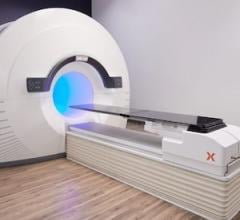Radiation oncology as a profession is in a period of retrenchment due to the economic crisis. There is also a growing demand from payors to show value for these treatments, said ASTRO President Anthony Zeitman, M.D. He says the technologies used need to undergo rigorous clinical testing to show what works best and what is most cost-effective. Part of ASTRO's push is for a national registry to help advance this data collection.
If you enjoy this content, please share it with a colleague
Related Content
Feb. 4, 2026 — On World Cancer Day (02.04.26), the American Society for Radiation Oncology (ASTRO) and the European ...
Feb. 4, 2026 — The Royal College of Radiologists (RCR) has issued its initial reaction to the British government's ...
Jan. 29, 2026 — The American Society for Radiation Oncology (ASTRO) has launched a national program creating Authorized ...
Jan. 27, 2026 — Researchers at the Icahn School of Medicine at Mount Sinai, in collaboration with other leading ...
Jan. 21, 2026 — Cathpax, a spin-off of the Lemer Pax group that designs, develops and commercializes team-wide, full ...
Jan. 16, 2026 — Elekta has announced that its Elekta Evo* CT-Linac has received 510(k) clearance from the U.S. Food and ...
Jan. 8, 2026 — RefleXion Medical, an external-beam theranostic oncology company, has announced the U.S. Food and Drug ...
Dec. 11, 2025 — Telix Pharmaceuticals Ltd. has announced a strategic clinical collaboration with Varian, a Siemens ...
Dec. 02, 2025 — Alpha Tau Medical Ltd., the developer of the alpha-radiation cancer therapy Alpha DaRT, has announced ...
Nov. 12, 2025 — On Nov. 11, Huntsman Cancer Institute at the University of Utah (the U) opened its first specialized ...


 February 04, 2026
February 04, 2026 









